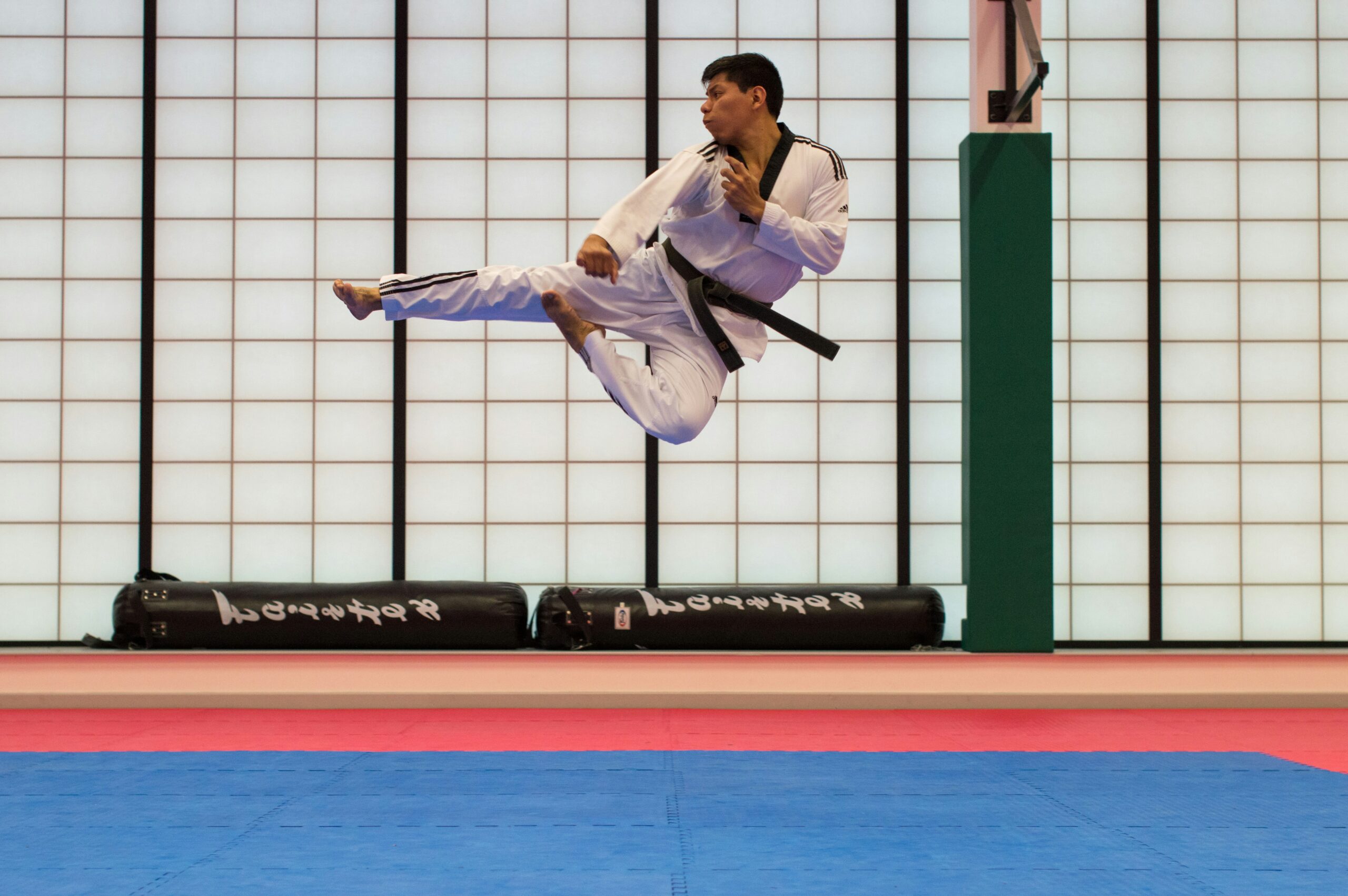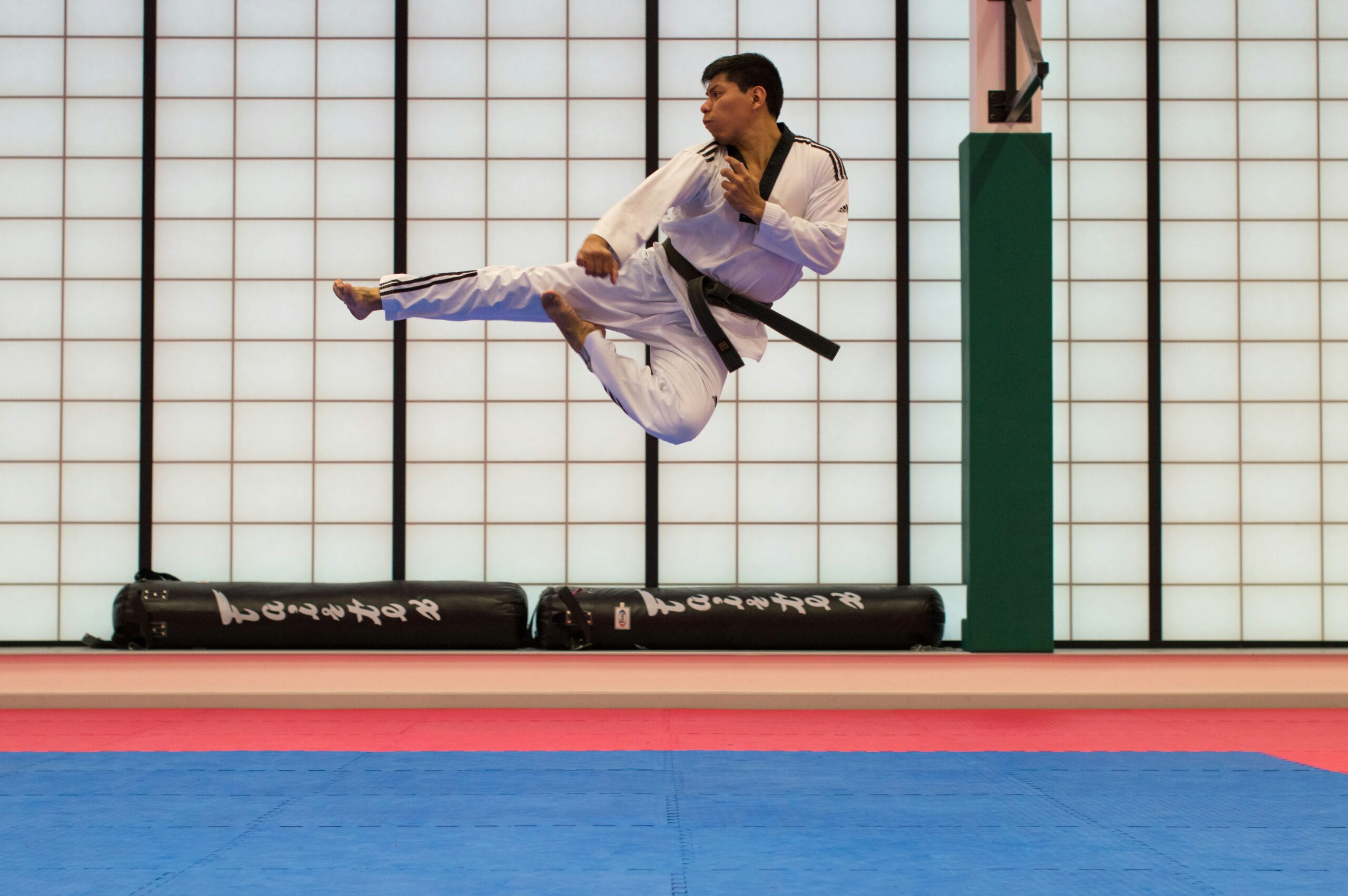
Transform Your Business with Jeet Kune Do: Timeless Tenets for Modern Success
Introduction to Jeet Kune Do
Jeet Kune Do, developed by martial arts pioneer Bruce Lee in the late 1960s, represents a significant shift in combat philosophy, emphasizing practicality, efficiency, and directness. Unlike traditional martial arts, which often adhere to rigid forms and techniques, Jeet Kune Do encourages practitioners to adopt a more fluid and adaptable approach to fighting. Bruce Lee’s goal was to create a system that eliminated unnecessary complexity, allowing individuals to integrate effective techniques from various martial arts styles into their practice. This adaptability not only contributed to the art’s effectiveness in combat but also serves as an inspiring model for modern business strategies.
The core tenets of Jeet Kune Do focus on simplicity and efficiency. At its heart, this martial art embodies the principle of “using no way as way.” This notion promotes the idea that there is no single perfect technique; instead, effectiveness comes from a personalized approach that draws from various sources. This philosophy aligns strongly with contemporary business practices, where flexibility and responsiveness to changing market conditions are crucial. By embracing a mindset akin to Jeet Kune Do, businesses can enhance their ability to adapt and innovate in a rapidly evolving landscape.
Additionally, Jeet Kune Do advocates for the removal of unnecessary barriers and distractions, guiding practitioners to focus on what truly matters. This philosophy resonates with modern organizations aiming to streamline processes and focus on core competencies. By adopting the principles of Jeet Kune Do, business leaders can foster a culture of clarity and efficiency—essential components for achieving sustained success in any competitive environment. Understanding the origins and philosophies behind this martial art provides valuable insights that can be applied to transform business practices and enhance overall performance.
The Core Philosophy of Simplicity
In the world of Jeet Kune Do, simplicity serves as a fundamental principle that can translate effectively to contemporary business practices. Bruce Lee, the founder of this martial art, emphasized the importance of removing the superfluous and concentrating on what is essential. This philosophy can significantly influence organizations looking to enhance efficiency, streamline operations, and foster sound decision-making.
Embracing simplicity means identifying and discarding unnecessary steps or processes in business operations. By simplifying workflows, companies can reduce the complexity that often leads to confusion among employees and stakeholders. A more straightforward approach fosters clearer communication, enabling teams to interact more efficiently. When tasks are delineated in a straightforward manner, it becomes easier for employees to understand their roles and responsibilities, promoting accountability and enhancing overall productivity.
Furthermore, the principle of simplicity aids in decision-making. In an era inundated with data and information, leaders may find themselves overwhelmed by choices. By adopting a simplified strategy, businesses can focus on the critical elements that actually drive results. This streamlining of decision-making can lead to faster, more confident choices, propelling the organization toward success.
Additionally, incorporating simplicity into business practices encourages creativity and innovation. A simplified environment allows team members to explore ideas without the burden of complex procedures or excessive regulations. This unencumbered approach can lead to the development of innovative solutions that respond better to market demands and enhance customer satisfaction.
In conclusion, adopting the core philosophy of simplicity from Jeet Kune Do can offer valuable insight for modern business practices. By emphasizing clarity and eliminating unnecessary steps, organizations can improve efficiency, streamline operations, and foster an environment where informed and swift decision-making thrives.
Adapting and Evolving: The Way of the Intercepting Fist
At the heart of Jeet Kune Do lies the principle of adaptability, which emphasizes the importance of responding swiftly and effectively to changing circumstances. This tenet, known as the Way of the Intercepting Fist, offers valuable insights for businesses seeking to remain relevant in an ever-evolving market landscape. By embodying the spirit of adaptability, organizations can not only survive but thrive amidst disruption and uncertainty.
To effectively adapt, businesses must cultivate a culture of innovation that encourages employees to embrace change rather than resist it. Companies like Netflix exemplify this approach; initially a DVD rental service, Netflix transformed itself into a leading streaming platform by anticipating shifts in consumer behavior and technology. This proactive adaptation allowed Netflix to dominate the entertainment industry, illustrating the necessity of being ahead of the curve.
Moreover, corporations such as Kodak serve as cautionary tales regarding the consequences of failing to adapt. Once a giant in the photography sector, Kodak struggled to pivot in the face of digital innovation. Despite being an early pioneer in digital camera technology, the company clung to its film business, ultimately leading to its decline. This stark example reinforces the importance of embracing innovation and change, aligning with the core philosophy of Jeet Kune Do.
Incorporating the Way of the Intercepting Fist into a business framework means fostering agility, encouraging collaboration, and promoting continuous learning. By effectively intercepting market trends, organizations can identify new opportunities and swiftly maneuver around potential obstacles. The adaptability principle encourages leaders to make informed decisions based on current realities, ensuring their strategies remain relevant and effective in a dynamic environment.
In summary, the ability to adapt is crucial for business success. By understanding and applying the principles of Jeet Kune Do, organizations can enhance their resilience and navigate the complexities of modern markets. The journey toward adaptability not only invigorates a company’s culture but also positions it favorably for future growth.
Combatting Limiting Beliefs: The Philosophy of Possibility
In the realm of personal and professional development, fostering a growth mindset is crucial for overcoming challenges and achieving success. The philosophy underpinning Jeet Kune Do, developed by the legendary martial artist Bruce Lee, emphasizes the importance of transcending limiting beliefs. This philosophy asserts that potential is not predetermined but can be cultivated through a mindset that embraces possibility. For businesses looking to innovate and thrive, adopting this mindset can lead to transformative outcomes.
Jeet Kune Do teaches practitioners to examine their internal narratives critically. Often, individuals are held back by self-imposed limitations—beliefs that their abilities and opportunities are fixed. By recognizing these constraints as subjective, one can free themselves from the confines of conventional thinking. The moment a business re-evaluates its internal barriers—such as fear of failure, resistance to change, or a fixed mindset—it opens the door to new possibilities. This process facilitates creativity and encourages a culture where experimentation is valued, leading to innovative solutions and strategic advancements.
The principles of flexibility and adaptability inherent in Jeet Kune Do can directly correlate with business practices. Organizations that foster an environment where employees are encouraged to think creatively and challenge their perceptions are more likely to cultivate a space for growth. By empowering team members to embrace a philosophy of possibility, companies can drive engagement and ultimately enhance performance. Setting aside limiting beliefs not only leads to individual growth but can also catalyze organizational change. In embracing this transformative mindset, businesses find themselves equipped to navigate complexities and seize opportunities effectively.
Efficiency through Directness: Less is More
In the context of Jeet Kune Do, a martial arts philosophy established by Bruce Lee, one of the core principles is the notion of directness, which advocates for efficiency through simplicity. This principle can greatly enhance business communication, emphasizing the importance of clarity and straightforwardness in interactions. By adopting this tenet, organizations can minimize misunderstandings, streamline workflows, and foster a collaborative team environment.
To implement direct communication within a business, it is vital to encourage team members to express their thoughts, ideas, and concerns in a clear and concise manner. This can be achieved through regular training sessions that focus on effective communication skills. For example, role-playing scenarios help employees practice articulating their messages without ambiguity while also allowing them to receive constructive feedback. Such exercises promote confidence and assure that each team member feels valued and heard.
Furthermore, the establishment of clear protocols for communication can leverage efficiency. This includes utilizing structured formats for meetings, emails, and reports, which encourage the succinct presentation of ideas. For instance, implementing bullet points in written communication can help convey essential information without overwhelming colleagues with unnecessary detail. Additionally, adopting technology tools that facilitate quick exchanges of information can contribute to a culture of directness.
Another critical strategy is creating an environment where open dialogue is encouraged. Employees should feel empowered to ask questions or seek clarification when needed. This approach reduces the risk of miscommunication and promotes a culture of teamwork, where every member is aware of their roles and responsibilities. In embracing the principle of directness, businesses can cultivate a more effective and aligned workforce, ultimately driving success through enhanced collaboration.
The Unity of Mind and Body: Integrating Well-Being in Business
In the contemporary business landscape, the integration of mental and physical well-being has emerged as a crucial element for enhancing overall performance. Drawing from the principles of Jeet Kune Do, which emphasize a holistic approach to personal development, organizations are beginning to recognize the symbiotic relationship between employee wellness and productivity. The philosophy behind Jeet Kune Do advocates for a balanced integration of mind and body, an idea that can be seamlessly applied to the workplace environment.
Employee wellness initiatives, focusing not just on physical health but also mental and emotional well-being, contribute significantly to morale and workplace cohesion. Research indicates that employees who engage in regular physical activity exhibit higher levels of energy, improved concentration, and enhanced mood, all of which are critical for optimal performance. Furthermore, fostering an environment that prioritizes mental health can reduce burnout, mitigate stress, and promote resilience among team members, resulting in reduced absenteeism and increased retention rates.
Businesses that adopt a holistic approach often observe improvements in productivity linked to enhanced employee engagement. Performance metrics reveal that organizations offering wellness programs experience a remarkable increase in collaboration and innovation. As individuals within these teams feel valued and supported, their ability to contribute meaningfully to collective goals is significantly strengthened. Therefore, integrating practices from Jeet Kune Do that promote the unity of mind and body can lead to an uplift in organizational culture.
Moreover, the introduction of mindfulness practices and stress management techniques can further augment this integration, leading to a more balanced and resilient workforce. By embracing this holistic mindset, businesses not only elevate their performance but also cultivate an environment where employees feel empowered and motivated to contribute their best efforts.
Fostering Resilience through Training and Preparation
In the realm of Jeet Kune Do, resilience is deemed a vital characteristic that practitioners must cultivate through rigorous training and preparation. This martial art, developed by Bruce Lee, emphasizes adaptability, mindfulness, and continuous growth. By applying these principles to business contexts, organizations can foster a resilient workforce capable of navigating the complexities of modern challenges.
Effective training programs that encourage skill acquisition and confidence building play a pivotal role in resilience. In Jeet Kune Do, practitioners engage in comprehensive drills, sparring, and simulations that prepare them for unpredictable encounters. Similarly, businesses can implement training sessions that mirror real-life scenarios faced by employees, whether they involve customer service challenges, crisis management, or collaboration in high-pressure situations. Such immersive experiences enable team members to develop critical thinking and problem-solving skills, directly enhancing their capacity to respond to unforeseen obstacles.
Moreover, emergency preparedness strategies are essential for cultivating resilience. Just as Jeet Kune Do teaches practitioners to anticipate and respond to opponents’ moves, businesses should equip employees with the knowledge and resources necessary to navigate potential disruptions. This could include regular drills for natural disasters, cybersecurity breaches, or workplace safety incidents. Establishing a culture of preparedness ensures that employees are not only aware of protocols but also confident in executing them, thereby mitigating panic and uncertainty during actual emergencies.
In conclusion, fostering resilience through structured training and thorough preparation is paramount for both Jeet Kune Do practitioners and business professionals. By drawing on the timeless tenets of adaptability and resilience inherent in Jeet Kune Do, organizations can build a workforce that thrives even in the face of adversity, ultimately transforming challenges into opportunities for growth and innovation.
Community and Collaboration: Building a Supportive Organization
Within the framework of Jeet Kune Do lies a profound emphasis on community and collaboration. These principles are not merely applicable within martial arts but extend seamlessly into the business world, facilitating the creation of a robust organization where teamwork is paramount. Embracing collaboration can lead to enhanced creativity, increased productivity, and ultimately, the achievement of organizational goals.
Teamwork is essential in any successful business. Encouraging an environment of open communication fosters camaraderie among employees, which can be achieved through regular team meetings and collaborative projects. This not only builds relationships but also encourages diverse perspectives that enhance problem-solving capabilities. A nurturing community enables individuals to share their ideas freely, leading to innovative solutions and a sense of shared ownership over the company’s success.
Moreover, integrating cross-departmental collaboration can significantly benefit a company. Departments often develop silos over time, which can stifle the overall progress and impede the flow of information. By organizing workshops or projects that require participation from various teams, organizations can dismantle these silos, promoting interdepartmental synergy. Implementing collaborative tools and technologies can also streamline communication and ensure that all team members are aligned and informed.
Another essential aspect is recognizing and celebrating teamwork. Acknowledging achievements, both big and small, reinforces a sense of community and motivates employees to work together more effectively. Implementing team-building activities is beneficial for fostering positive relationships, enhancing trust among employees, and reinforcing the collaborative spirit critical for success.
Overall, the spirit of collaboration inspired by Jeet Kune Do, when adopted within a business framework, can lead to a more unified and supportive organization, paving the way for sustained growth and success.
Conclusion
In the dynamic realm of business, the application of martial arts philosophies can yield transformative results. Jeet Kune Do, developed by Bruce Lee, offers not only martial prowess but also profound principles that can be adapted to enhance business practices. One of the primary tenets is the emphasis on adaptability. Businesses today must be agile, responding swiftly to changing market trends, consumer preferences, and technological advancements. By fostering an environment that encourages flexibility and responsiveness, organizations can stay ahead of the competition.
Another significant tenet is the concept of simplicity. In a world inundated with complexity, focusing on straightforward solutions can lead to increased efficiency. Businesses should evaluate their processes and eliminate unnecessary complications that may hinder productivity. Encouraging employees to prioritize essential tasks can maximize resources and optimize overall performance.
Moreover, the value of personal expression highlighted in Jeet Kune Do promotes individuality within a team context. Encouraging team members to bring their unique perspectives can drive innovation and creativity. This approach not only creates a stimulating work environment but also enhances problem-solving capabilities, as diverse viewpoints often lead to more comprehensive solutions.
Finally, the principle of continuous improvement is vital in today’s fast-paced business landscape. Embracing a culture of learning and development ensures that organizations remain relevant and competitive. Encouraging employees to pursue professional growth and development aligns with the spirit of Jeet Kune Do, which stresses mastery through practice and reflection.
By thoughtfully integrating these principles into daily operations, businesses can cultivate a robust framework for success. The timeless teachings of Jeet Kune Do, emphasizing adaptability, simplicity, personal expression, and continuous improvement, provide powerful tools for companies aspiring to achieve sustainable growth in today’s ever-evolving marketplace.

